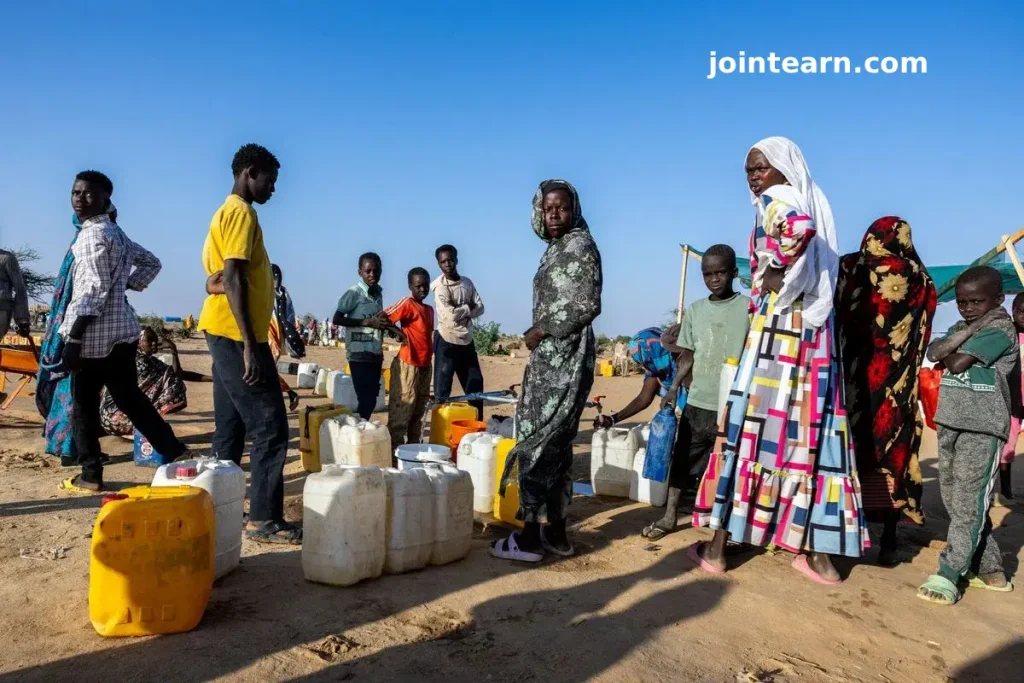
JUBA, Sudan — The United Nations has issued an urgent warning that humanitarian aid operations in North Darfur, Sudan, are on the verge of collapse following the seizure of El-Fasher by the Rapid Support Forces (RSF) last month. Relief agencies report that hunger, disease, and widespread violence are escalating, putting tens of thousands of civilians at immediate risk.
El-Fasher, the capital of North Darfur and the last major city outside RSF control in the region, fell on October 26, marking a critical escalation in Sudan’s ongoing conflict. Survivor accounts, satellite imagery, and video evidence indicate that over 1,500 people were killed in ethnically targeted attacks in the days following the takeover.
Humanitarian Situation Deteriorates Rapidly
The International Organization for Migration (IOM) highlighted that humanitarian operations are “on the brink of collapse.” In a statement, the agency warned that warehouses are nearly empty, aid convoys face extreme insecurity, and access restrictions are preventing the delivery of essential supplies.
Amy Pope, IOM’s director general, emphasized the urgency of the situation: “Our teams are responding, but insecurity and depleted supplies mean we are only reaching a fraction of those in need. Without safe access and urgent funding, humanitarian operations risk grinding to a halt at the very moment communities need support the most.”
Refugee Displacement and Malnutrition Crisis
Since the RSF seized El-Fasher from Sudan’s rival military forces, more than 16,200 people have fled to camps in Tawila, with approximately 82,000 people displaced from the city and surrounding areas as of last week. Many refugees have taken perilous routes without food, water, or medical care.
Doctors Without Borders (Médecins Sans Frontières) has described malnutrition levels in refugee camps as “staggering.” Among children under five who arrived in Tawila between the fall of El-Fasher and November 3, more than 70% were acutely malnourished, with over a third suffering from severe acute malnutrition. The organization warned that the true scale of the crisis is likely far worse than reported.
The World Health Organization (WHO) added that thousands remain trapped in El-Fasher with minimal access to food, clean water, or medical care, amplifying the humanitarian emergency.
Eyewitness Accounts of RSF Violence
Eyewitnesses have described horrifying acts of violence by the RSF following the city’s capture. One survivor told Reuters that RSF trucks “sprayed civilians with machine gun fire and crushed them with their vehicles. Young people, elderly, children—they ran them over.” Another reported seeing militiamen raiding homes and killing 50 to 60 people in a single street.
The RSF has been engaged in armed conflict with Sudan’s army since April 2023, after tensions erupted between the two former allies, plunging the country into a prolonged and deadly war.
Urgent Call for International Support
The rapid deterioration of the humanitarian situation in North Darfur has prompted calls from UN agencies and aid organizations for urgent international intervention. Without immediate funding, safe access, and protection for aid convoys, the humanitarian crisis risks escalating into a full-scale catastrophe.
The unfolding events in El-Fasher underscore the human cost of Sudan’s ongoing conflict and the urgent need for coordinated global action to protect civilians, deliver humanitarian assistance, and restore stability in the region.


Leave a Reply